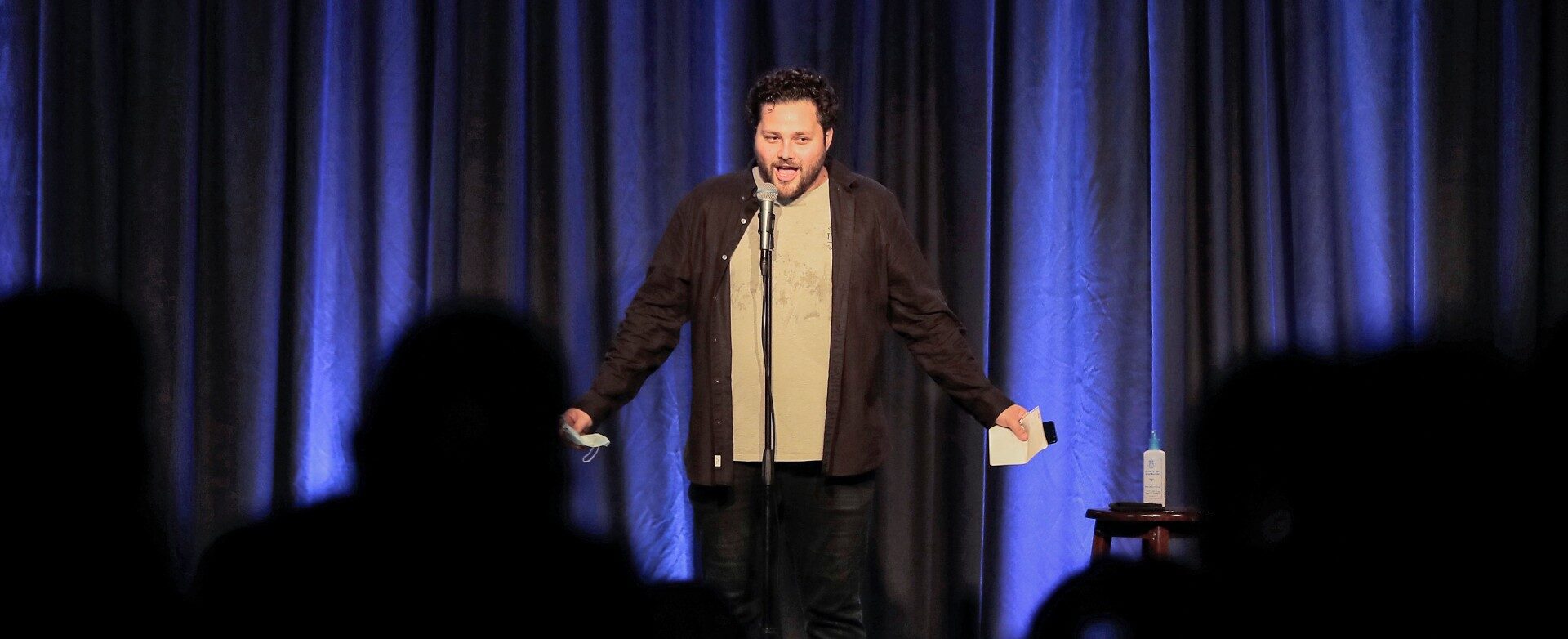Last week, the military police summoned comedian Nour Hajjar over a joke he made about how soldiers are now working as delivery drivers in the midst of socioeconomic deterioration.
Hajjar’s joke, while deemed unfunny by official authorities, is largely true: due to the lack of income from being a soldier, many have had to resort to other means of generating income.
The ill-perception of Hajjar’s joke by official apparatuses indicates the government’s large disdain towards minimum wage jobs. The idea that a soldier is above working as a delivery worker because of ‘status’ or ‘prestige’, is only one issue in these summonings.
This is not the first time that official apparatuses try to censor comedians, as comedian Shaden Fakih was also recently fined by the Military Tribunal for reputational damages against Internal Security Forces.
On a broader contextual level, censorship attempts have also targeted journalists and different types of organizers and political commentators in an unprecedent crackdown on freedoms in the country.
The summoning of Hajjar was accompanied by a massive campaign on social media, especially through comments on the comedian’s posts, after the circulation of a fragmented version of a joke he made regarding his family’s relationship with a local Sheikh for religious ceremonies. The video was considered insulting for many conservative viewers, and far from being a coincidence, was circulated around the same time as the summoning.
On August 29, the Secretary of Dar al-Fatwa in the Lebanese republic, Sheikh Amin el-Kurdi submitted a new claim against the comedian before the public prosecution at the Court of Cassation. The charges include some as “disturbing the peace between elements of the nation” and “stirring strife.”
Campaigns as such always use justifications of protecting social and traditional values and norms and grand narratives of “demographic change” in Lebanon, such as when addressing issues related to refugees.
On August 29, Hajjar was summoned a third time, now by criminal detectives. Public prosecutor Judge Ghassan Oueidat issued a decision to summon Hajjar less than 24 hours after receiving a claim from Dar al-Fatwa’s Secretary, Sheikh Amin el-Kurdi.
It is worth noting that Nour Hajjar has not been officially notified of any lawsuit against him until this moment, and therefore he did not abstain from any investigation to be brought this way to the Palace of Justice.
The Legal Bases of the Investigation
To better understand the situation, Beirut Today spoke to Ayman Raad. Raad is a lawyer who has previous experience in providing support for activists during the October 2019 uprising and concerts such as the “The Sound of Music is Louder” concert in support of Machrou Leila, following the cancellation of their concert in Byblos.
According to Raad, many legal options are on the table, but many illegal options are also possible given Lebanese recent history of lack of law enforcement.
Concerning what authorities are able to do at this point, regardless of legality, he highlights four distinct measures.
The first one is they either let Hajjar go, sue him or transfer him to the Military Court. The second option is to arrest him, despite his actions not being ones that require arrest, given the current illegal measures being taken by public offices. The third option – also an illegal one – is to pressure awk.word to remove the video from their platforms. On their part, the Public Prosecution has the right to legally close down awk.word’s page for one month.
The fourth and final option, which is an extreme case and can be considered an abus de droit (or abuse of law), is the closing down of KED throughout the trial period.
In terms of how long the authorities are able to keep Hajjar inside, Raad explains that if a decision was taken to arrest Hajjar, they are able to keep him in until a trial takes place and a decision is taken. Usually, they don’t have the right to keep him in for more than four days without transferring the file to the court. However, they can take a decision to arrest him and transfer the file immediately.
Finally, Raad explains that Hajjar is being summoned on the basis of a Lebanese Law Article that addresses contempt for the army or military establishment.
Again, the military court is not within its remits to take measures to address breaking of this article, and is technically acting outside of its formal boundaries.
What Does This Mean?
What it means is that amidst the current sociolegal state of affairs in the country, many illegal options are very much on the table.
The campaigns that are targeting Hajjar are negatively impacting the chances of a fair process.
The demonization of certain figures or certain discourses has been a common strategy adopted by the Lebanese security apparatus, but especially by militia and mafia groups who seek to otherize, label as a traitor and demonize certain figures or groups before taking violent actions against them. Undermining someone socially and otherizing them publicly are often steps of a wider strategy to take violent or exclusionary steps against certain figures or groups.


